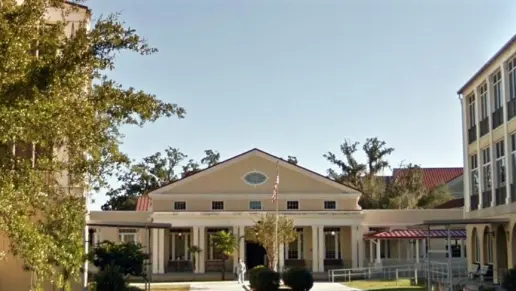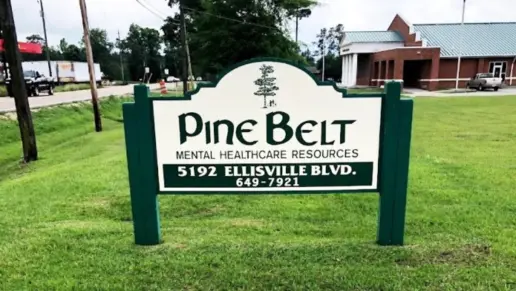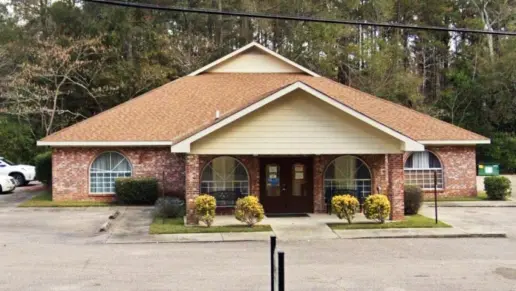This service is what should be in all other centers! It is an impeccably excellent service! The staff is friendly, helpful, and always aware of your needs. Very good and highly recommended!
About Region IV Mental Health Services
Region IV Mental Health Services in Booneville, Mississippi, has support services and treatment for addiction, mental health, and behavioral health issues for adults and seniors. They have inpatient, medication assisted treatment, mental health crisis services, general outpatient (OP) programs and medication assisted treatment (MAT).
Residential programs for addiction treatment at Region IV can last anywhere from 30 to 90 days depending on the individual’s needs and treatment progress. This program helps residents through peer support and 12 Step programs. They also have a residential facility for those who are struggling with one or more mental health issues interfering with their activities of daily living.
There are also therapy philosophies such as cognitive behavior therapy and dialectical behavioral therapy. Individual, family, and group therapy sessions as well as life skills and vocational training are offered in residential care.
Intensive outpatient medication assisted treatment (MAT) is available for acute symptoms. These meds can help reduce withdrawal pains and cravings. That way, you’ll have less of a chance of a relapse. If you need additional IOP care, they can refer you to their centers in Alcorn, Tippah, and Desoto Counties.
They have a center in the next block for children and youths. Mental health services start for children as young as 5. Whether a child is struggling with severe emotional disturbance or your teen is addicted to alcohol and drugs, there’s treatment available. Whether it is inpatient, wraparound services, intensive outpatient, day treatment, or standard outpatient treatment, there are trained specialists available to help your child or youth navigate life in a healthier and happier manner. Region IV provides psychiatric and medical services, targeted case management and community support services to children, youth and their families.
They also have a MYPAC program. This is the Mississippi Youth Program Around the Clock. It is for children and youth from ages 5 to 21 who meet the clinical criteria for PRTF, are eligible for Medicaid and have complex mental health needs. Individuals who are enrolled in CHIP do not qualify for the MYPAC program.
There are programs, treatment options, and specialists that focus on the needs of elderly patients. There are age specific groups, resources, and peer support programs for those who are in their golden years and struggling with mental health, cognitive, or behavioral issues.
Most health care plans are accepted for treatment programs at Region IV. It is important to check with your personal health insurance provider to ensure you understand what benefits you have, what those benefits cover, and whether or not you will be financially responsible for any of the associated costs.
Rehab Score
Gallery

Location
Accepted Insurance
Other Forms of Payment
Private insurance refers to any kind of healthcare coverage that isn't from the state or federal government. This includes individual and family plans offered by an employer or purchased from the Insurance Marketplace. Every plan will have different requirements and out of pocket costs so be sure to get the full details before you start treatment.
Self-pay involves paying for treatment out of your own pocket. You can use savings or credit, get a personal loan, or receive help from family and friends to fund your treatment. If you don't have insurance or your insurance plan doesn't cover a specific program, self-pay can help ensure you still get the care you need.
Financial aid can take many forms. Centers may have grants or scholarships available to clients who meet eligibility requirements. Programs that receive SAMHSA grants may have financial aid available for those who need treatment as well. Grants and scholarships can help you pai for treatment without having to repay.
Sliding scale payments are based on a client's income and family size. The goal is to make treatment affordable to everyone. By taking these factors into account, addiction recovery care providers help ensure that your treatment does not become a financial burden to you or your family, eliminating one barrier to care.
Medicare is a federal program that provides health insurance for those 65 and older. It also serves people under 65 with chronic and disabling health challenges. To use Medicare for addiction treatment you need to find a program that accepts Medicare and is in network with your plan. Out of pocket costs and preauthorization requirements vary, so always check with your provider.
Military members, veterans, and eligible dependents have access to specific insurance programs that help them get the care they need. TRICARE and VA insurance can help you access low cost or no cost addiction and mental health treatment. Programs that accept military insurance often have targeted treatment focused on the unique challenges military members, veterans, and their families face.
Medicaid is a state based program that helps lower-income individuals and families pay for healthcare. Medicaid covers addiction treatment so those enrolled can use their coverage to pay for rehab. When a program accepts Medicaid the client often pays very little or nothing out of their own pocket.
Addiction Treatments
Levels of Care
Treatments
Many of those suffering from addiction also suffer from mental or emotional illnesses like schizophrenia, bipolar disorder, depression, or anxiety disorders. Rehab and other substance abuse facilities treating those with a dual diagnosis or co-occurring disorder administer psychiatric treatment to address the person's mental health issue in addition to drug and alcohol rehabilitation.
Mental health rehabs focus on helping individuals recover from mental illnesses like bipolar disorder, clinical depression, anxiety disorders, schizophrenia, and more. Mental health professionals at these facilities are trained to understand and treat mental health issues, both in individual and group settings.
Programs


Clinical Services
Cognitive Behavioral Therapy (CBT) is a therapy modality that focuses on the relationship between one's thoughts, feelings, and behaviors. It is used to establish and allow for healthy responses to thoughts and feelings (instead of unhealthy responses, like using drugs or alcohol). CBT has been proven effective for recovering addicts of all kinds, and is used to strengthen a patient's own self-awareness and ability to self-regulate. CBT allows individuals to monitor their own emotional state, become more adept at communicating with others, and manage stress without needing to engage in substance abuse.
Treatment that includes dialectical behavior therapy in Mississippi gives you specific tools for managing challenging situations. You'll learn how to identify and change unhealthy thought patterns. You'll also attend group training sessions where you can start applying the skills you're learning in treatment.
Group therapy is any therapeutic work that happens in a group (not one-on-one). There are a number of different group therapy modalities, including support groups, experiential therapy, psycho-education, and more. Group therapy involves treatment as well as processing interaction between group members.
In individual therapy, a patient meets one-on-one with a trained psychologist or counselor. Therapy is a pivotal part of effective substance abuse treatment, as it often covers root causes of addiction, including challenges faced by the patient in their social, family, and work/school life.
Trauma therapy addresses traumatic incidents from a client's past that are likely affecting their present-day experience. Trauma is often one of the primary triggers and potential causes of addiction, and can stem from child sexual abuse, domestic violence, having a parent with a mental illness, losing one or both parents at a young age, teenage or adult sexual assault, or any number of other factors. The purpose of trauma therapy is to allow a patient to process trauma and move through and past it, with the help of trained and compassionate mental health professionals.
Whether a marriage or other committed relationship, an intimate partnership is one of the most important aspects of a person's life. Drug and alcohol addiction affects both members of a couple in deep and meaningful ways, as does rehab and recovery. Couples therapy and other couples-focused treatment programs are significant parts of exploring triggers of addiction, as well as learning how to build healthy patterns to support ongoing sobriety.
Research clearly demonstrates that recovery is far more successful and sustainable when loved ones like family members participate in rehab and substance abuse treatment. Genetic factors may be at play when it comes to drug and alcohol addiction, as well as mental health issues. Family dynamics often play a critical role in addiction triggers, and if properly educated, family members can be a strong source of support when it comes to rehabilitation.
Staff

COO

Human Resources

Clinical Director of Adult Services

Clinical Director of Children Servuces

Cleanical Director of Compliance

Clinical Director of Subtance Use
Contact Information
2100 East Chambers Drive
Booneville MS, 38829







